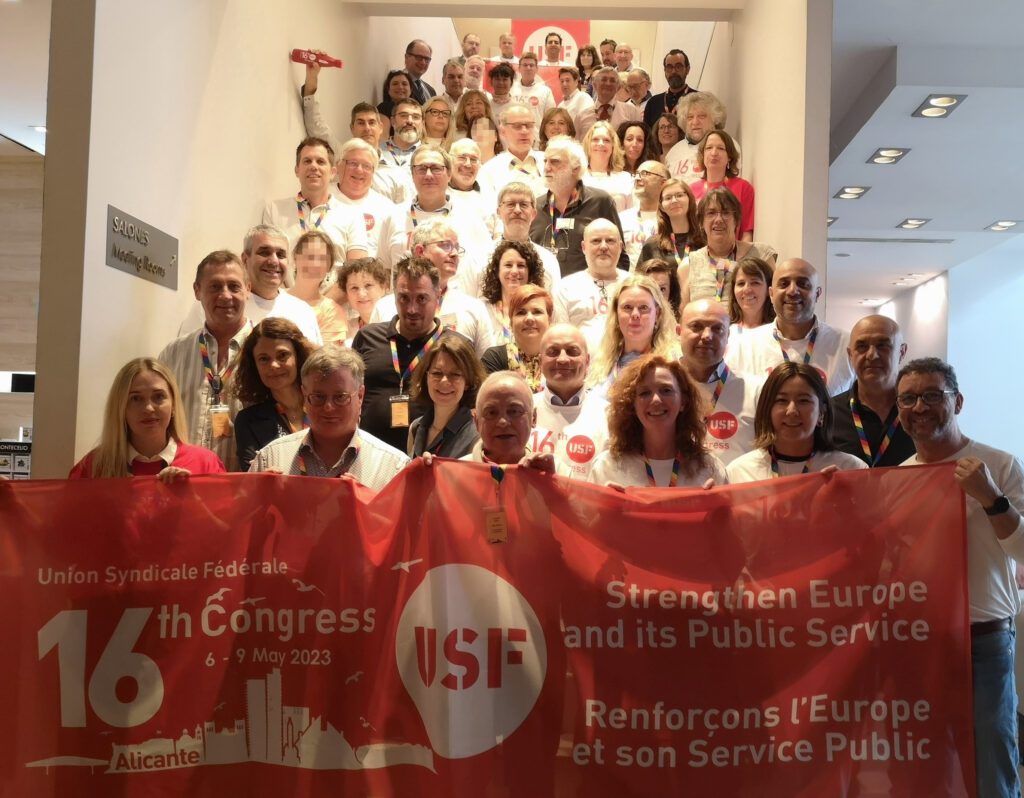Lost promotion possibilities

The Appointing Authority has just published the lists of those staff eligible for promotion and the number of promotion possibilities for this year. You have to look hard for them, as they no longer appear in a Staff Note. As has been the case since 2017, the Appointing Authority is continuing to cut promotion possibilities in specific grades. For promotions to grades:
• AST 7, only 29 out of 38 promotion possibilities have been freed up
• AD 13, only 4 out of 30 promotion possibilities have been freed up
• AD 14, only 7 promotion possibilities have been freed up, even though the quota provided for in the Staff Regulations (obtained by Union Syndicale in 2004) is 13
As in previous years, the Staff Committee was, indeed, consulted on this issue, but its opinion in favour of amending the figures did not change the Appointing Authority’s position. Even the action brought by three colleagues against this practice at the General Court in 2022, which was supported by Union Syndicale, did not change the Appointing Authority’s position. We will need to await the judgment in order to remedy the situation with effect from 2022.
With its position, in 2023, the Appointing Authority risk further disappointment among colleagues in these grades, who consequently have no choice but to lodge a complaint against this incorrect application of the statutory rules on promotion. Union Syndicale is ready to support these colleagues in their action.
It should be remembered that the reduction in promotion possibilities in specific grades does not simply adversely affect the colleagues in question for one year alone. There are consequences for the remainder of their career – as well as a subsequent reduction in pension. In addition, fewer promotions in grade P this year lead to fewer promotions in grade P+1 in subsequent years,
and so on.
Flexitime – Chronogestor replaced by… yes: Sysper

The administration considers that the proposed new license for Chronogestor, the software that is behind our Flexitime application, is too expensive. It wants to replace it with Sysper at the end of the year. Clearly, Sysper – which was designed for the (quite different) needs of the Commission – is not capable of covering the whole range of rules on working time at the Council which, since 2004, have been negotiated and adapted by the administration and the representative trade unions (always including Union Syndicale). For this reason, the Appointing Authority has invited the trade unions to negotiate a revision of our Flexitime rules.
Three consultation meetings have so far been held, as a result of which the respective positions of the administration and the unions have become clear. The administration has not yet explained to us why it prefers Sysper to the software used by the Parliament.
It has, however, already reiterated its refusal to resolve issues outstanding from previous negotiations, namely:
• Limiting the working day to 12 hours in all cases (the maximum allowed by the Working Time Directive);
• The ban on interrupting the minimum daily (12-hour) and weekly (36-hour) rest periods – as provided for in the Working Time Directive . Union Syndicale ask the Appointing Authority to apply the Directive (which was adopted by the Council itself).
• Compliance with the maximum 150 hours cap on overtime over a six-month period – as provided for in the Staff Regulations.
Key points on which agreement has still to be reached:
• The trade unions reject the possibility for all managers to impose out-of-hours work scheduling, as proposed by the Appointing Authority.
• The number of days per year that staff are allowed to telework from a place other than their place of residence.
• Working time on mission.
• Time off for health reasons for work carried out on a Friday evening, which the Appointing Authority proposes to remove.
• The current deadline for leave not taken would be removed – the Appointing Authority proposes moving this from 15 January (in the new year) back to 31 December.
• Lunch break rules.
• The rules on travelling time for special leave.
Union Syndicale will continue to keep you informed and is available to answer your queries. In due course, we will hold a General Meeting of staff so that you can voice any concerns.
A new internal competition for AST1 and AST2 will be published soon
Union Syndicale welcomes these opportunities for promotion and/or to become officials. Internal competitions are a good way to reduce job insecurity for temporary staff members, setting them on the path to a permanent career in the European civil service. This benefits all staff and the GSC as a whole.
Today there is an urgent need to increase the number of permanent posts at the GSC. The recent recruitment trend over the last three years, with up to 90% of new recruits being contract or temporary agents, is regrettable.
This also damages the reputation of our institution. We therefore appreciate the efforts of our administration to redress this balance to some extent and hope they will continue to organise internal competitions to ensure that qualified staff remain with our institution.
Union Syndicale is pleased to support its members and accompany them through the whole competition process. We offer individual advice and assistance at all stages, premium webinars, training manuals and group sessions with experienced colleagues.


USF Congress – the four-day week, and low salaries
In May, Union Syndicale Fédérale held its congress in Alicante. Eight delegates from our Council section helped set out the overarching trade union policies for the coming years.
At the initiative of our delegation, our union federation adopted two new policies that will form part of our priorities for the future, namely:
• A reduction in working time, based on a -four-day week. An increasing number of European public administrations and businesses have been adopting this model, and IG Metall, the largest trade union in Europe, has included this in its demands for this year.
• Reducing the difference between our highest and lowest salaries. We will need to find ways of ensuring that lower salaries are increased faster than higher salaries.
For more information on what was decided at the congress, please click here .
The value of our publications
Some articles have been doing the rounds claiming that Ursula von der Leyen’s salary would rise by 15% this year and that all EU officials would have similar hefty salary increases.
Agence France Presse has sent out some information refuting this fake news, citing a recent publication by Union Syndicale.





